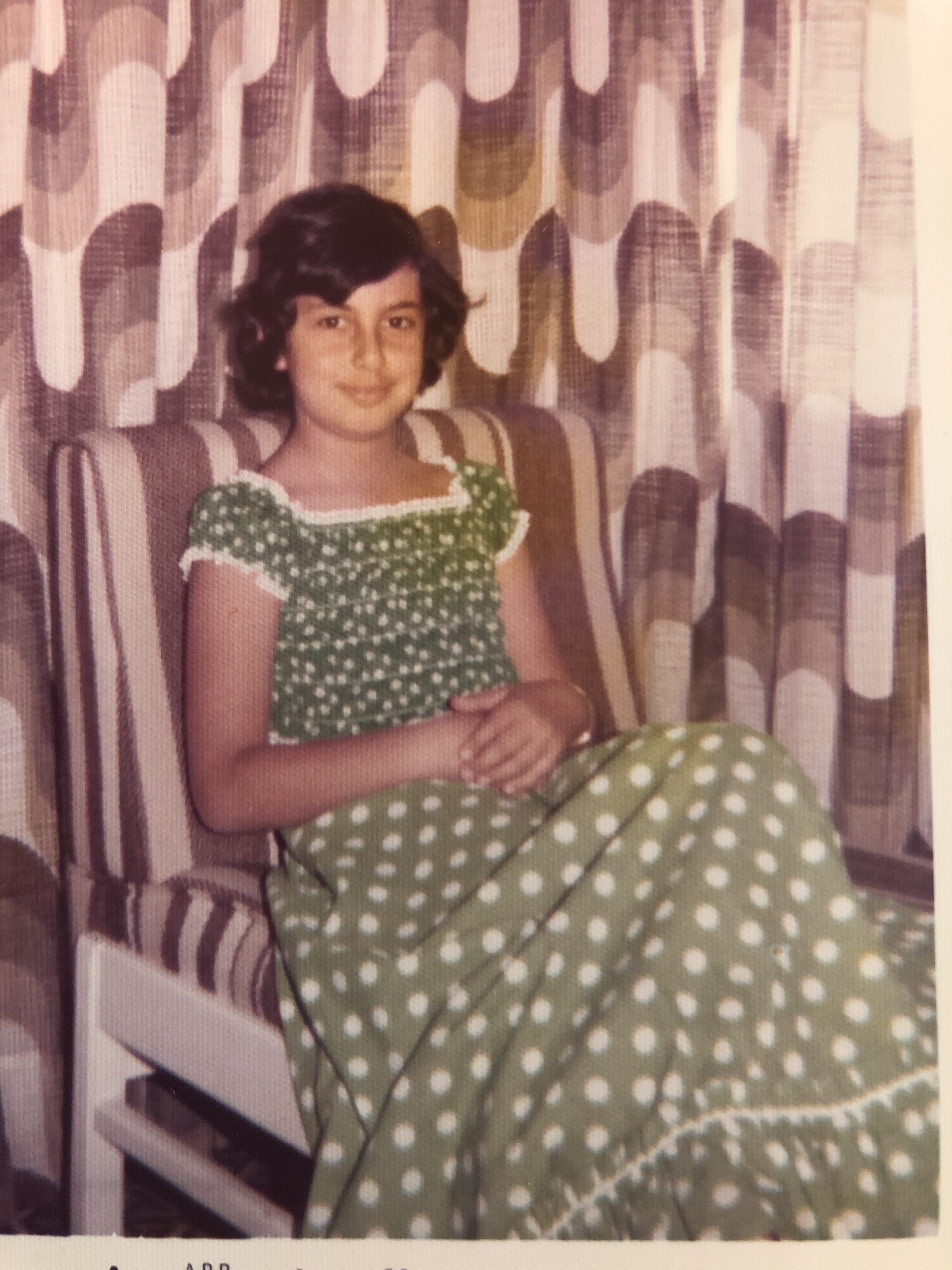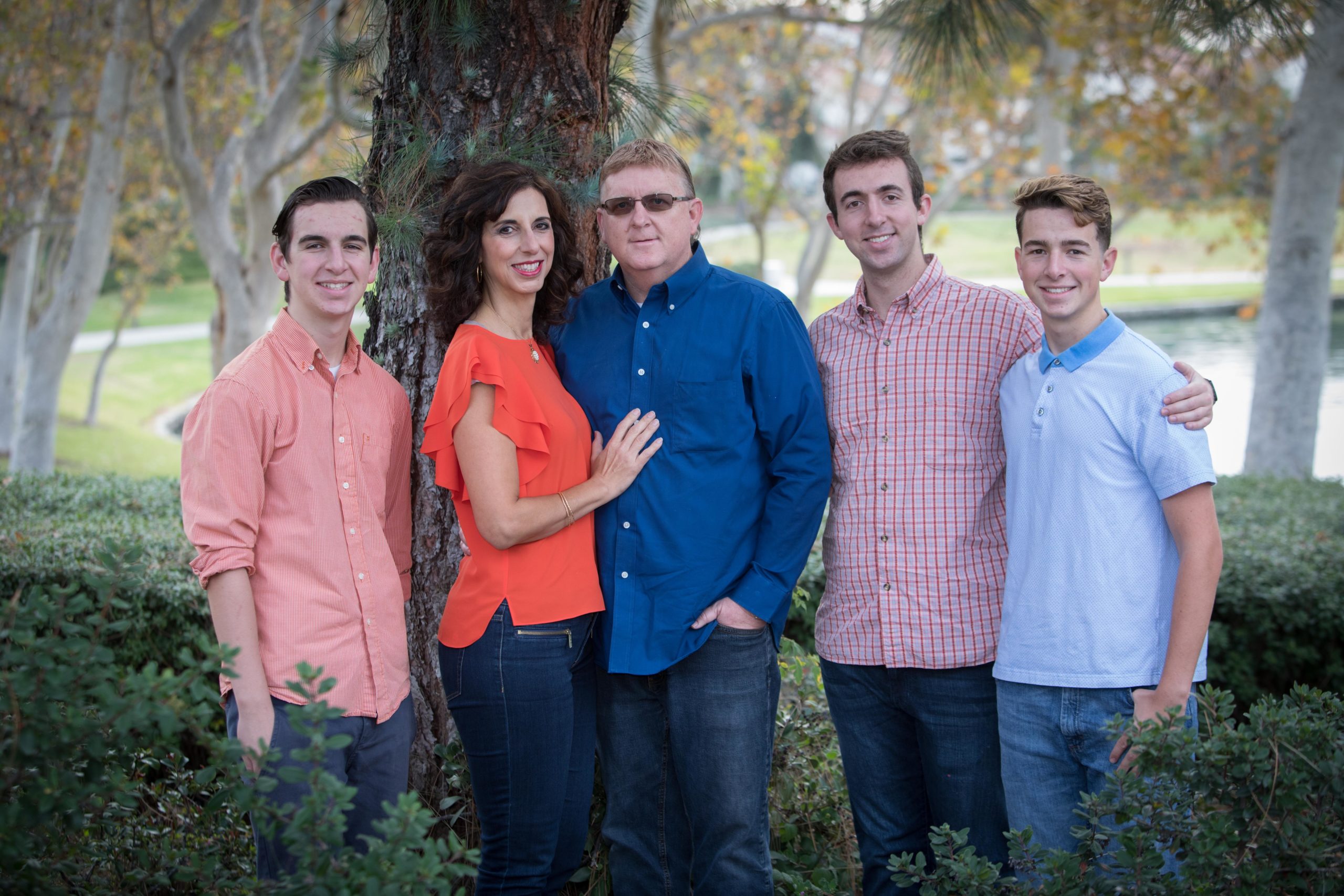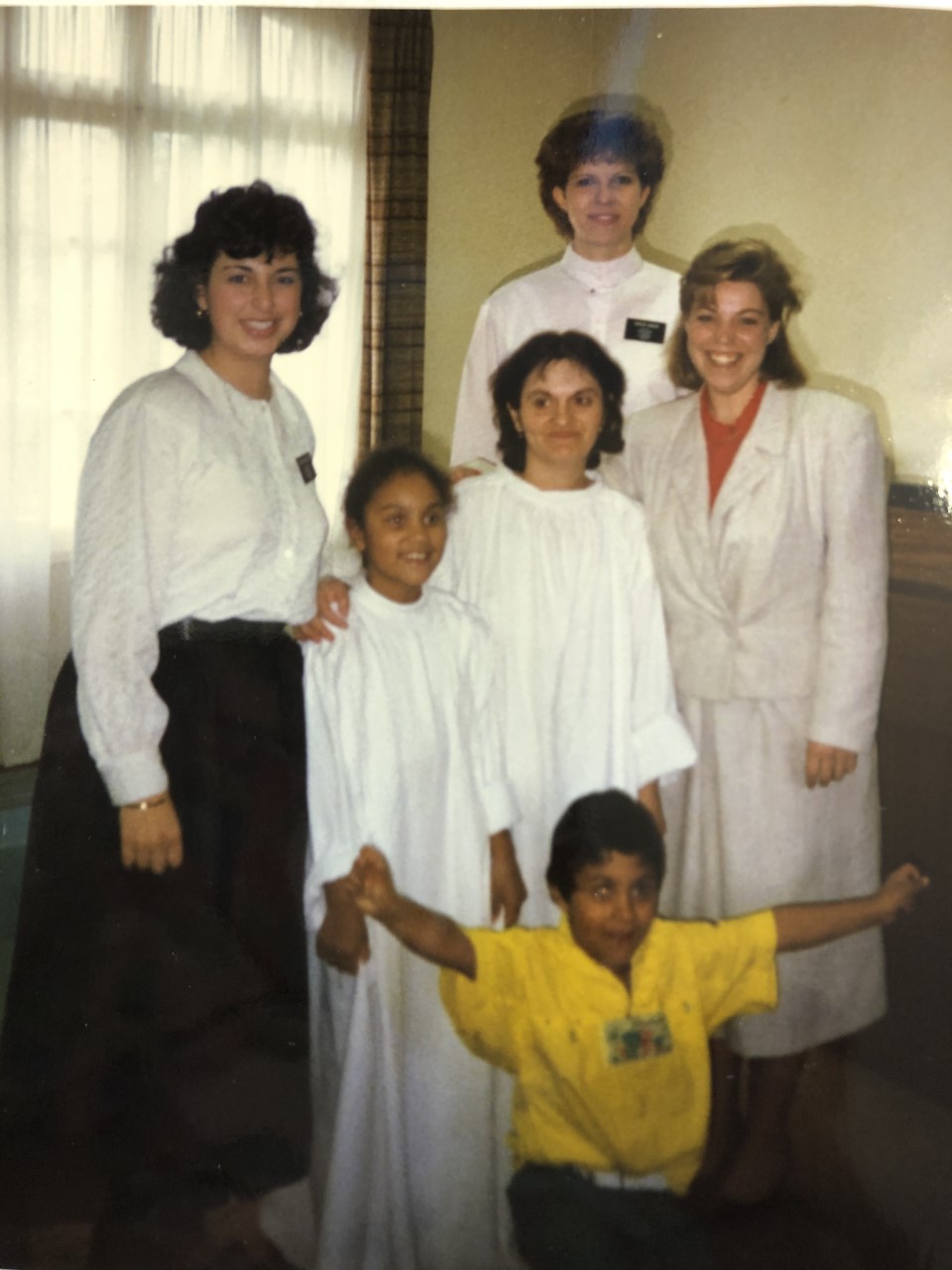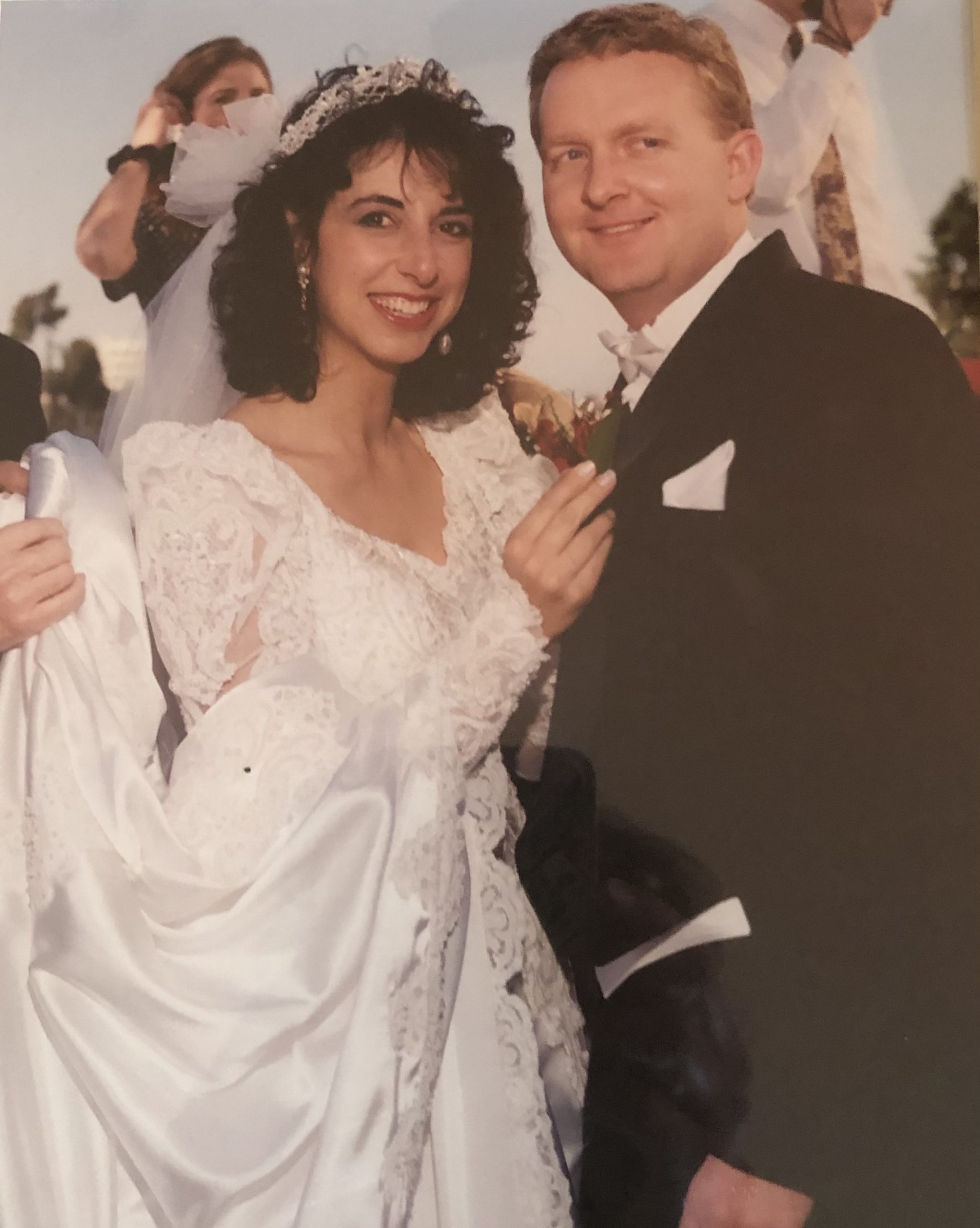“[My] grandparents immigrated to Lebanon from Palestine during the Arab-Israeli conflict. My parents grew up in Lebanon…. I was born in Libya. I lived there for about four years. We moved to Lebanon for about three or four years…. There was the civil war, and then we moved to Kuwait. And then when I was about twelve years old, we moved to the United States, to San Francisco…. My family has been Christian, I would say for centuries, on both sides of my family.
So we came in 1978, and in 1979 my parents bought their first home in Walnut Creek, in California. And we were assimilating to the American [way of life]…. Especially from a Middle Eastern perspective, and then [encountering] a Western culture, they wanted to make sure that we still kept those very conservative morals, if you will. America was seen as sex, drugs, and rock and roll….
Once [our neighbors] saw that we were kind of interested [in the Church of Jesus Christ of Latter-day Saints] they brought us to church with them. And so we started to go to church.… They were super friendly. So that ward or that congregation just really took us in because they were just really nice people…. My parents got baptized…. I think being members of the Church helped us preserve some of the values that we had growing up that were very much part of our culture… But I think for all of us, I would say for every single one of us, our relationship with God was better, it was more real. God became a more real person to us.
[My husband and I] dated for about a year, and I wanted somebody to be open minded because my family’s Lebanese. We’re still … not the typical American family. I’m like, is he going to like the food? Is he going to let me speak Arabic? Does he care that we are Lebanese? Or is he prejudiced against Arabs? You just don’t know when you come from another country how people might feel about your culture. What about his family? Are they prejudiced? I don’t know. But his family was lovely. I think on our third date I was like, “Okay, we’re going to a Lebanese restaurant and there’s gonna be a belly dancer.” Because that’s the other part … is he going to be really narrow minded, or is he somebody with an open spirit? He was having a great time…. And so that was really great. As I visited his family, family was really important to him too…. I wanted somebody whose family was important to them, because I wanted both of our families to be important to us. So we dated and a year later we did get married in the temple.”




